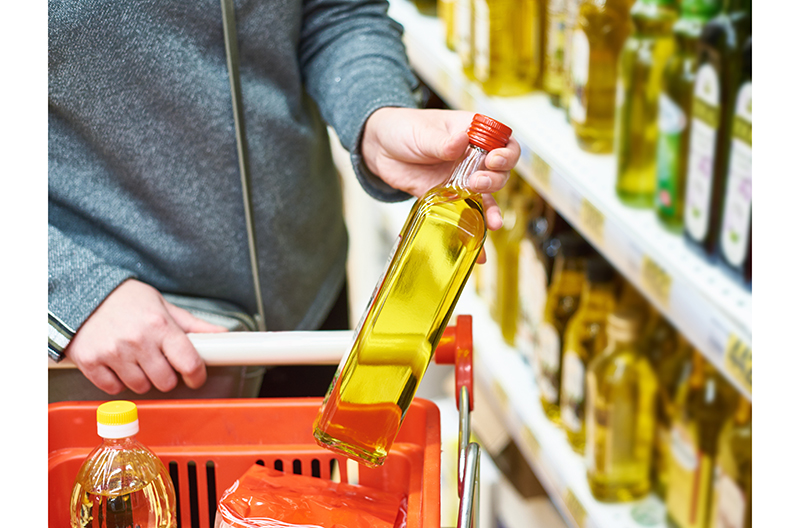The North American Olive Oil Association (NAOOA) has announced plans to commission a comprehensive olive oil testing study. The association has also invited other industry stakeholders to provide strategic and financial support for this project.
The announcement comes as drought in Europe and elsewhere in the Mediterranean has caused lower yields and tightening global olive oil supplies. These market conditions are expected to keep olive oil prices at historic highs for the coming months. In light of these circumstances, the NAOOA testing study is intended to further strengthen consumer confidence in the authenticity and quality of the olive oil they buy.
“Our industry has successfully undertaken an ambitious, years-long effort to significantly improve the quality of olive oil in the American marketplace. As a result, consumers today can have tremendous confidence in the integrity of the olive oil available in U.S. stores,” said Joseph R. Profaci, executive director of the NAOOA.
“As prices climb due to current market conditions, we think it’s even more important to assure consumers that they’re getting the quality and authenticity they deserve. That’s why we’re launching this testing effort, which sets a new, even higher standard for our industry. The NAOOA has conducted random, off-the-shelf testing of both members’ and non-members’ products for years, but this study will vastly broaden those efforts.”
This study’s aim is to create a new benchmark for olive oil testing, further strengthening the quality of olive oil industrywide. The NAOOA has asked Tassos C. Kyriakides, assistant professor of biostatistics at the Yale School of Public Health, to design and oversee a sampling protocol that will set the standard for the industry, with the following proposed elements:
- Largest sample size: The program will test more than 200 samples, which is more than any single domestic study conducted previously.
- Retail samples: The program will test olive oil purchased from supermarkets and other retail outlets – not from samples supplied from producers.
- Foodservice samples: The program will sample olive oils from wholesalers who supply restaurants and other foodservice outlets.
- Geographic diversity: Olive oils will be tested proportionately from across the country to reflect geographic distribution.
- Branded and private label: The testing will encompass proprietary brands and private label products.
- Sampling by independent sampling agencies: The sampling will be conducted by independent sampling agencies unaffiliated with the olive oil industry in accordance with strict protocols based on regulatory guidance.
- Testing in an independent, accredited lab: The testing will be conducted in an independent lab accredited by the International Olive Council, an organization chartered by the United Nations more than 60 years ago to oversee standards for the production and quality of olive oil around the world.
- Full physico-chemical and organoleptic testing: Each sample will be subject to full chemical and organoleptic (sensory) testing of all parameters that are included in the proposed federal standard of identity for olive oil (including PPP and DAGs).
- Inclusive of all grades: The study will test all olive oil grades and types commonly available to U.S. consumers (i.e., extra virgin, regular and light-tasting).
“Olive oil is one of the healthiest foods people can eat, but consumers who lack confidence in it will sadly turn to other, less healthful oils,” Kyriakides said.
“That’s why this testing program is so important. It’s designed to test olive oil at a scale and level of transparency never seen before, so consumers can continue to feel great about buying this incredibly healthy food.”
The testing program will begin sampling in early 2024 to coincide with the first major shipments of olive oil from the most recent northern hemisphere growing season. The study is being announced in advance in part to deter any potential misconduct by bad actors seeking to capitalize on current market conditions.
For any oil that fails to meet authenticity standards, the NAOOA intends to notify the responsible parties and take any responsive actions deemed appropriate under the circumstances, up to and including notification of government authorities and/or initiating direct legal action.
About the North American Olive Oil Association
The North American Olive Oil Association is committed to supplying North American consumers with quality products in a fair and competitive environment, to fostering a clear understanding of the different grades of olive oil and to expounding the benefits of olive oil in nutrition, health, and the culinary arts.
Read more center store news from The Shelby Report.

